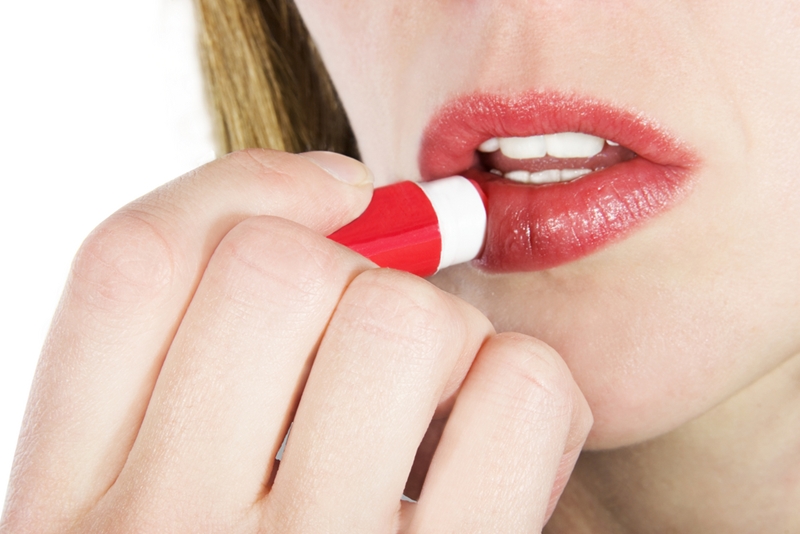
Winter quickly approaches, which means soon you'll have all the fun of late-night sledding and lazy afternoons spent watching Christmas movies. While the season has its perks, you still have to worry about that bitter chill. Beyond making you cold to the bone, this season can also take a toll on your oral health. Fortunately, with a little care strategy, you can stop dental damage in its tracks.
Be aware of sensitive teeth
Smiling through the winter wind feels a lot like biting into an ice cream bar - cold! For some people, pain may accompany that freezing feeling, which is a sign of sensitivity. Normally, two hard outer layers - the enamel and cementum - protect the teeth's pain-sensing nerves and cells. According to the American Dental Association (ADA), when those defenses are stripped away, the dentin, which contains small hollow canals, is exposed. Cold, hot and sticky substances can penetrate those tubules, reach the nerves and lead to discomfort.
"Typically, an underlying condition causes tooth sensitivity."
Typically, an underlying condition that compromises the protective power of enamel and cementum causes tooth sensitivity. For example, a cracked tooth, cavity or gum disease could contribute to the deterioration of these layers. First and foremost, never ignore dental issues. It's important to find a dentist and schedule an appointment if you feel this discomfort, as there's likely a more serious problem causing the pain. Be sure to use a dental discount card if you need more affordable oral care.
In the meantime, practicing proper oral hygiene can minimize pain, as it can help correct the underlying problems causing the discomfort. Brush twice a day using a desensitizing toothpaste and soft-bristled brush. If flossing once a day proves too painful, don't neglect the habit altogether. Opt for a less abrasive tool, like a dental water jet, to remove plaque and food particles from between the teeth.
Treat chapped lips
Dental care isn't limited to just your teeth - it involves any body part that plays a role in your mouth's function. Chapped lips are commonplace during the colder months, and they won't go unnoticed by a dental health professional. They can make eating, drinking and talking difficult and are just downright painful.
If you suffer from chapped lips, the Mayo Clinic suggested that you do your best to protect this area of the face. Avoid licking your lips, and make sure you wear a lip cream or balm with SPF protection. Since this condition is so apparent in winter, you may benefit from always carrying lip balm in your pocket during this season. Additionally, shield the sensitive skin on your lips from the harsh wind by wearing a scarf or some other protective layer. Finally, drink plenty of water. Not only will this help hydrate your skin, but it can also contribute to better oral health overall, as fluids wash away food particles in the mouth.
While these tips should help with chapped lips, it's important you speak with your dentist if the condition doesn't go away. If left untreated, your lips can become inflamed or infected, the U.K. National Health Service warned. In some cases, chronic chapped lips may be a sign of a more serious underlying condition.

Make sure you moisturize your lips this winter.
Consider your overall health
'Tis the season for colds and the flu, so be sure to take care of your well-being this winter. That starts with practicing daily oral care. According to Northwestern Dental Group, infected gums and plaque buildup can increase your risk for contracting a virus. After all, poor dental health creates a window of opportunity for bad bacteria to get into your system. Make sure you brush and floss regularly and avoid sharing drinks or putting things in your mouth (we're looking at you, nail biters!). Replace your toothbrush every three months or after you get sick to prevent reinfection.
If you do end up with a sore throat, be aware of remedies that may be detrimental to your oral health. Those with a cold commonly pop cough drops in their mouths to soothe a scratchy esophagus. Be leery of this treatment plan - cough drops are usually ladened with sugar. The longer you keeps these dental demons in your mouth, the more time they have to react with plaque and launch acid attacks on your teeth, ultimately leading to tooth decay. Instead, opt for sugar-free lozenges. Additionally, if you want to drink something warm to soothe your sore throat, go with a cup of tea instead of hot chocolate to safeguard against sugar.
This winter, make visiting the dentist a priority, as it should be every six months. If you need help with dental coverage, consider a supplement plan like the dental discount card.
